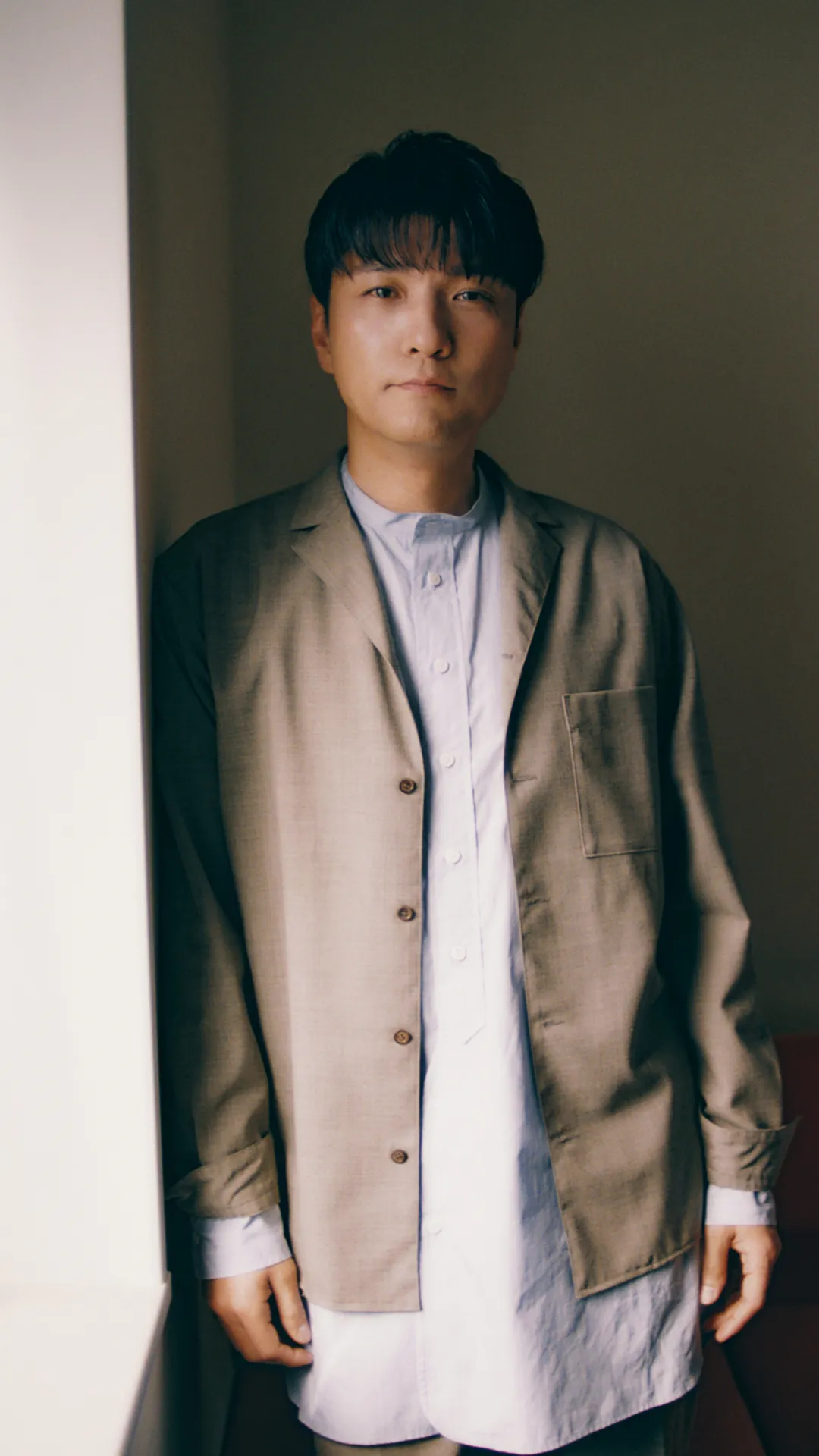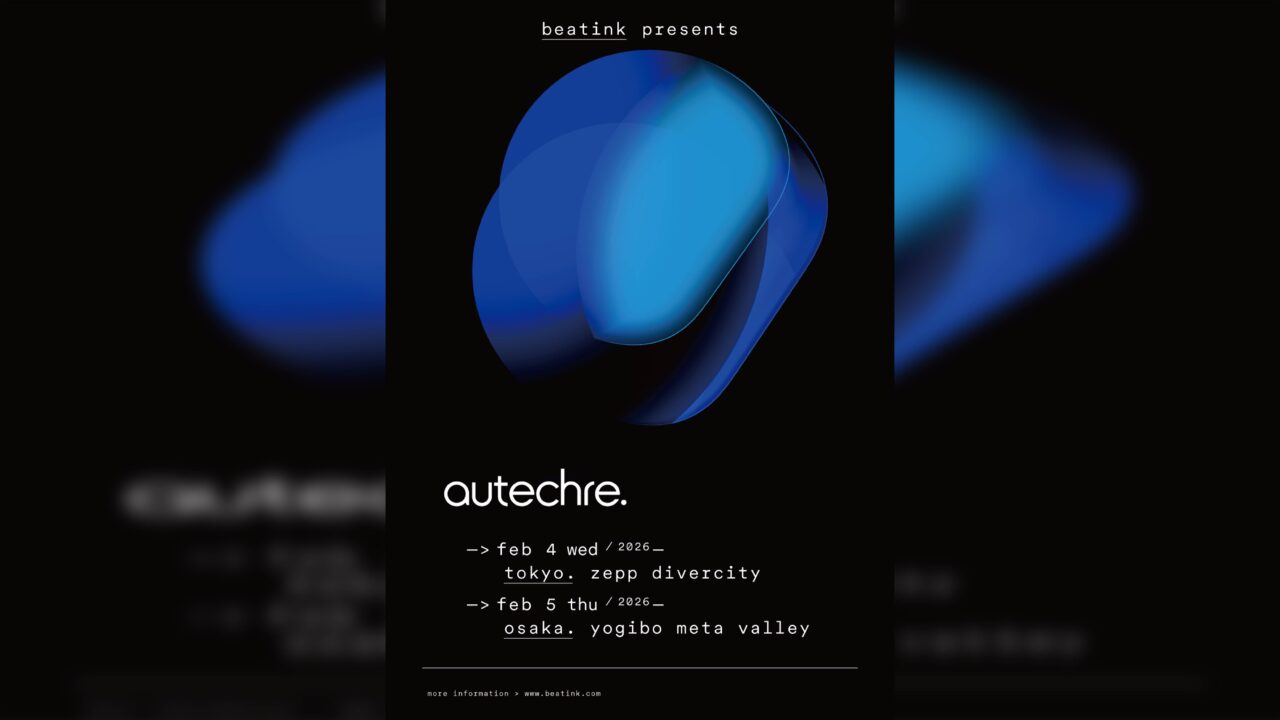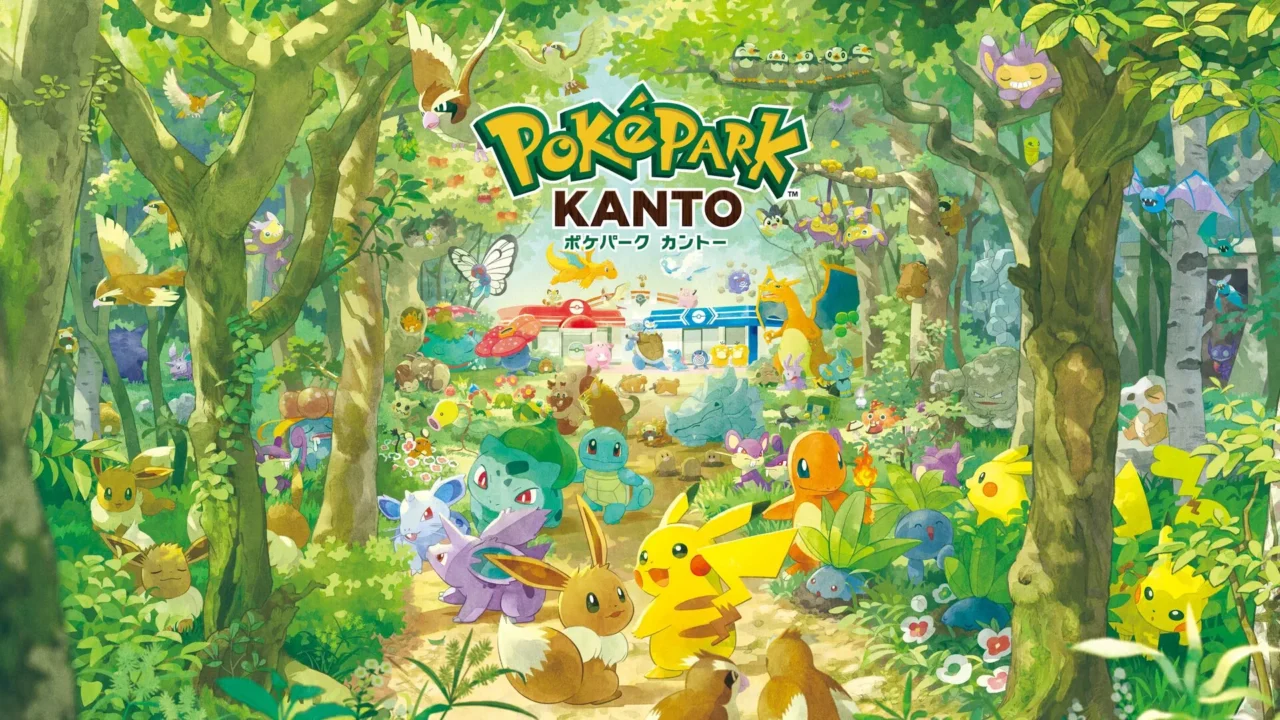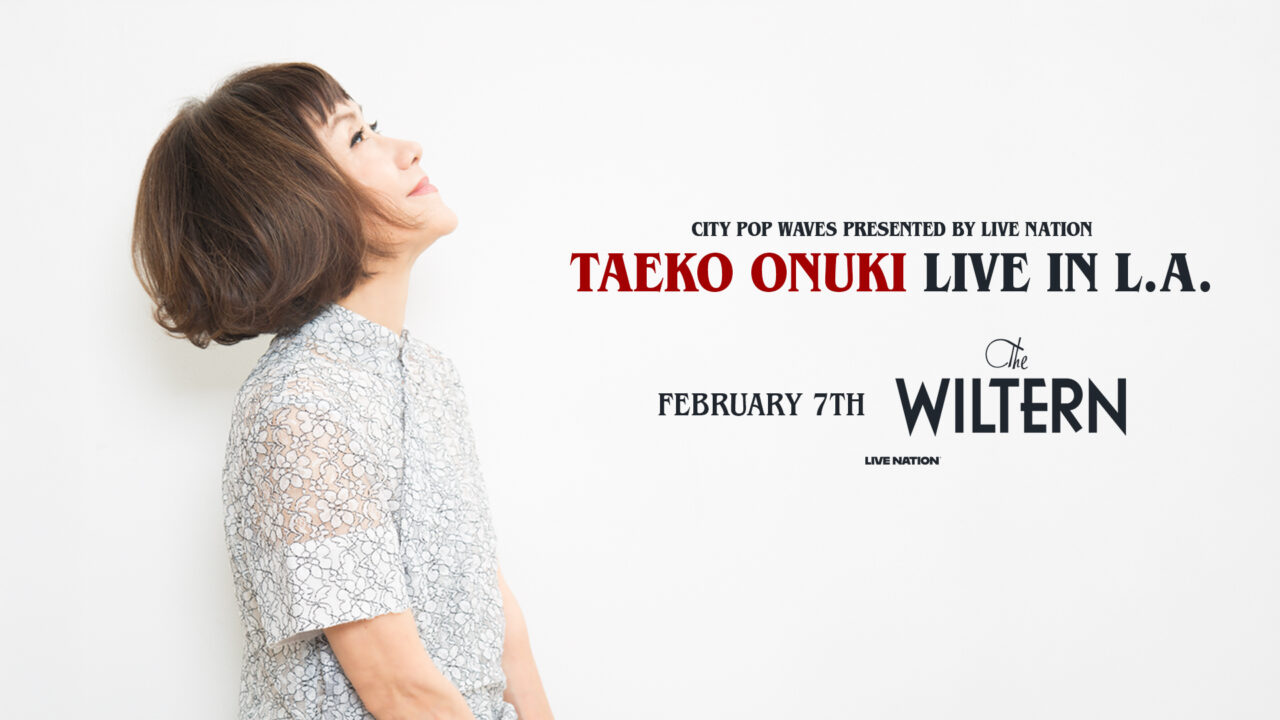The bond between a person and their parents is a fundamental part of shaping who they are, yet it remains deeply personal, making it nearly impossible to compare with others. When an artist delves into their relationship with their parents through their work, it becomes a form of therapy—an intimate exploration that not only deepens their self-awareness but also resonates with the audience, prompting them to reflect on their own familial connections.
Naotaro Moriyama’s final domestic performance of his two-year tour at Ryogoku Kokugikan, along with the film Where is This Wonderful World?, which poignantly captures his relationship with his late father, embody the essence of this process. Avoiding conversations about his father since his parents’ divorce in childhood, Moriyama’s journey over the past few years led him to rediscover his feelings of love and sorrow. As he confronted his father’s death, his music evolved, revealing a profound shift in how he perceives the world—an evolution captured in tracks like “papa” and the new song “New World,” which he describes as a creation his father “made him write.” This journey wasn’t just about confronting his father, but about embracing the truth that, through this exploration, he is now more alive than ever.
INDEX
Overcoming the Fear of Solo Performances: How the Tour Transformed His Approach to Singing
The song ‘papa’ from the album ‘Wonderful World’ was personally very impactful for me. At a time when I was reflecting on what it means to become a parent, your song about facing your father really resonated with me. When I watched the movie, which also depicted your relationship with your father, I had a similar feeling to when I first heard ‘papa.’ Reflecting on this, what was this tour like for you, Moriyama?
Moriyama: This tour included 107 shows across the country, but for me, sticking to the same thing over and over is just not possible. So, I divided the tour into three parts: solo acoustic, bluegrass, and full band. I often create songs with just my guitar, so playing solo is my foundation. However, in the past 20 years, I didn’t often think about doing a live solo performance. The idea of getting on stage alone and singing my songs felt like exposing my identity, and that was scary.
In the past, your performances have often involved a band, right?
Moriyama: I took that approach because there were more options available, so it felt like the right choice. But this time, being able to return to performing the songs I made solo, in a solo acoustic style, was really significant. For the first three songs of the setlist—’Ikiteru koto ga tsurai nara’ a cappella, ‘Aoi hitomi no koibito-san’ solo, and ‘Rakuda no rappa’—the sense of distance and timing has changed so much compared to 10 years ago. In the past, there was a switch for me when I sang, but now, I feel like there is no clear boundary between when I start singing and before I begin.
After 20 years of not performing solo, what made you decide to take the leap?
Moriyama: A few years before I started this tour, something happened that made me take a long, hard look at my career. For the first time in over 15 years, I realized that, in the end, I am the only one who can take full responsibility for my life and my work. Up until then, even though it was my own career, I never fully treated it as my own responsibility. I was probably afraid of getting hurt, but I reached a point where I realized that I couldn’t keep going like this. It wasn’t enjoyable anymore, so I decided to take a chance with a solo acoustic style. Even if it didn’t work out, I felt like I could always rethink things from there, and that was a big shift for me.
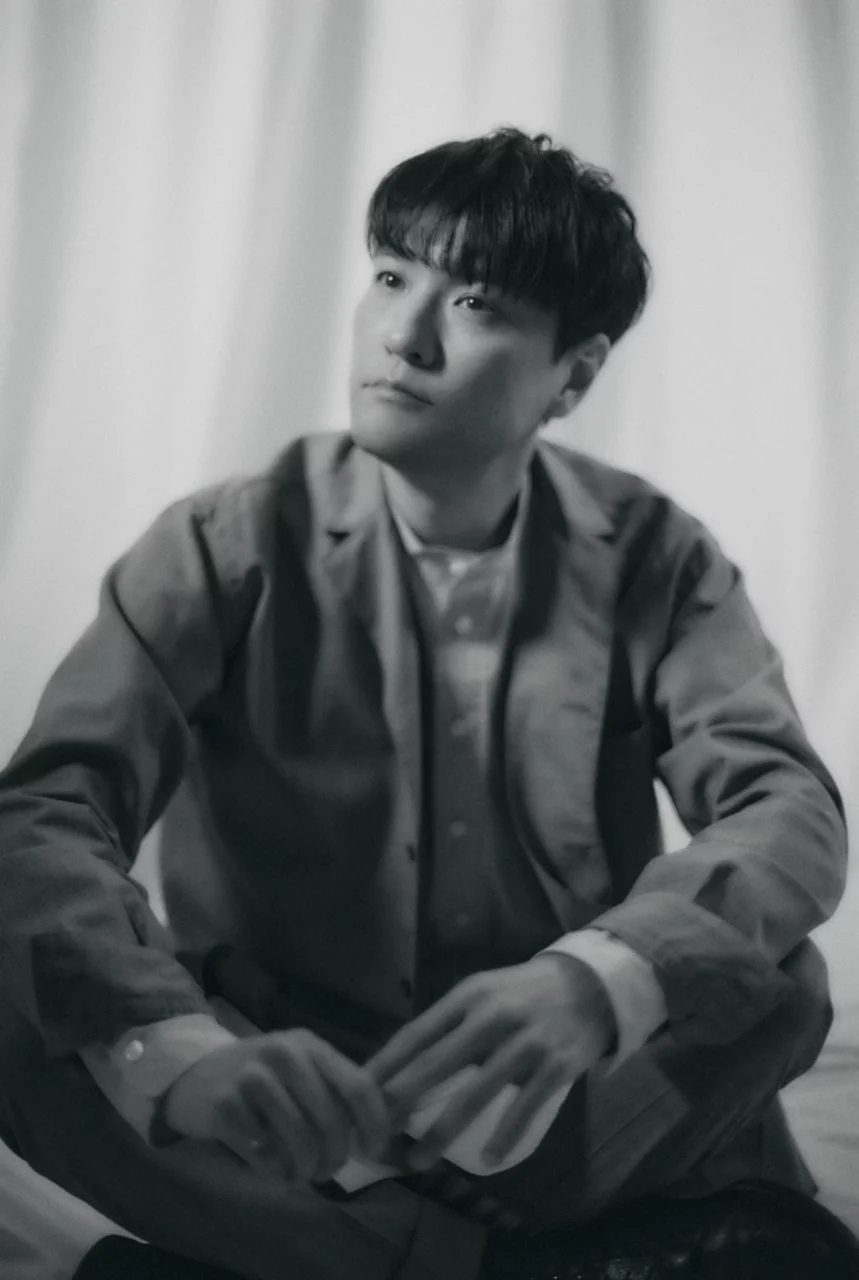
Born on April 23, 1976, in Tokyo, is a celebrated folk singer whose music and distinctive voice have earned him a loyal following across generations. Making his major debut in 2002 with the mini album Kawaita Uta wa Sakana no Esa ni Choudo Ii (The Dry Song is Just Right for Fish Food), Moriyama quickly established himself as a unique artist with a sound all his own. Beyond his musical career, he has also made his mark as an actor, captivating audiences with his performances in NHK’s Kokoro no Kizu o Iyasu to Iu Koto and Yell. His versatility continues to shine as he gears up for his role in the upcoming film Natsu no Suna no Ue, set to hit theaters on July 4. With each new endeavor, Moriyama’s artistry expands, resonating with fans far and wide.
How was the experience when you actually tried it?
Moriyama: I would say there were more positives than negatives. If I had to mention something negative, it’s that I’m not the best at playing the guitar, and when I’m on stage by myself, whether it’s during a song or while tuning, I tend to fill the space with something. But I also thought, “Well, that’s just who I am at this moment,” and it became a daily discovery. Gradually, I got used to it, and I started to feel that the rough sketch of a solo performance felt the most freeing.
So it was more about the style than the sound?
Moriyama: Yes, there’s a sense of reassurance. I don’t have to match anyone else’s rhythm. For example, if I make a mistake, I can just start over. There are fewer physical and sensory limitations, and I think that’s what I enjoy.
Were there any songs that became easier to sing?
Moriyama: Songs like “papa” and “Aishi Kimi e” are ones where it’s important to have myself at the center, so they were easier to perform. Especially in the performance at Ryogoku Kokugikan, we had a small ensemble with cello, piano, fiddle, guitar, and banjo, and it was a center-stage setup. It felt like a kind of silent communication, almost like a breathing rhythm. Every time we played the same song, it felt like a different version due to the subtle interactions between us.
INDEX
Confronting the Affection for His Father He Might Have Taken to the Grave
“Papa” is a song about your father, and I believe it plays a central role in the film as well. Could you tell us about the circumstances under which this song was created?
Moriyama: Actually, “Papa” started as a song titled “Mama” when I was about 18 or 19. The idea had been with me for a long time, but I couldn’t put lyrics to it for over 20 years. I thought I might offer it to someone else if the right opportunity came along. But then something happened, and I pulled this song out, changed the title to “Papa,” and suddenly the song just came together.
What was the event that triggered this?
Moriyama: My parents divorced when I was young, and I had been somewhat distant from my father since around the fifth grade. I think there were many reasons for the divorce, but my mother was a very strong presence, and since my father had married into her family, he probably felt somewhat lost. But as a child, I never wished for the divorce. Time passed like that until in 2020, during a conversation with someone, I was suddenly asked, “Did you like your father?”
That was quite a sudden question.
Moriyama: Yes. Normally, you don’t really think about whether you like or dislike your family members. So, I sort of avoided the question, saying, “Well, he’s a good person.” But then I was asked again, “Did you like him?” So I started thinking about it, and instead of just rewriting my memories, a very fundamental, early memory surfaced.
In that memory, my father was really a charming person. He loved baseball, and we would play catch together. We had a very typical father-son relationship, and I looked forward to playing with him every day. So I told that person, “I really loved him,” and I was able to acknowledge the feelings I had for my father. It made me realize that my low self-esteem came from feeling like the people closest to me were rejecting my father. And I realized that, at some point, I had been the one to reject him the most. But at that moment, I was able to be honest with myself, and it felt very healing. That’s when the lyrics for “Papa” came to me.
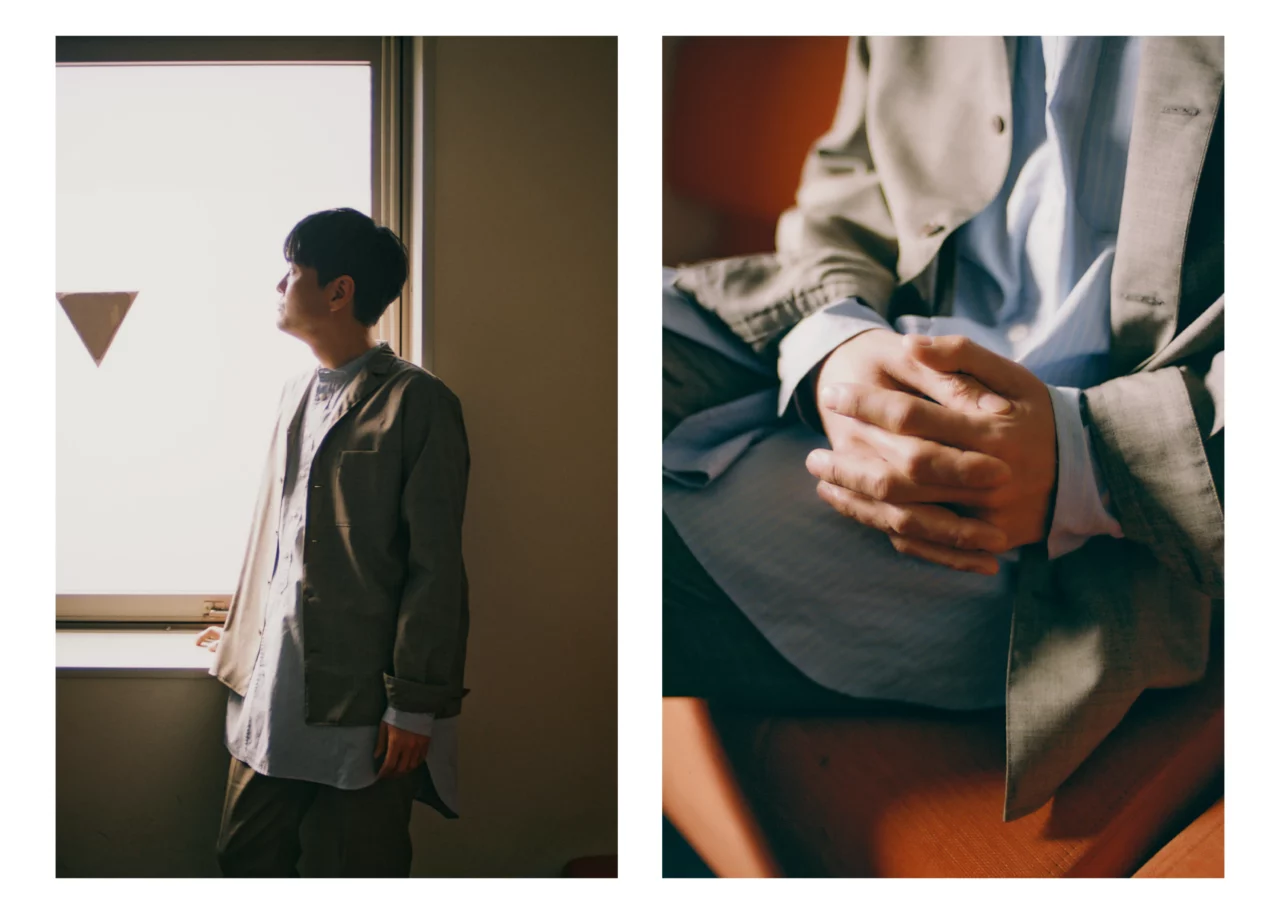
Facing your father’s feelings led to a deeper understanding of yourself, didn’t it? And still, it was such a sudden realization.
Moriyama: Yeah, usually, songs like this come out when someone passes away or when you can’t see them anymore. But when I wrote this song, I never imagined my father would pass away. It was more about finally being honest with feelings I had kept hidden, and that honesty sparked the creativity for the song.
Had you ever written a song about your father before that?
Moriyama: No, I hadn’t. I had always kept some distance, both physically and emotionally. “Papa” was the first time.
INDEX
Wonderful World: A Glimpse from the Brink of Death
The film is titled “Where is the Wonderful World?”, but there is also a song called “Wonderful World” on the album released in 2022. I believe this is where you began expressing the idea of “wonderful world.” What led you to start thinking about the concept of “wonderful world”?
Moriyama: In the summer of 2021, I contracted COVID-19. It was pretty severe, and I had a fever of around 40°C for about a week. I was writhing in bed, and my oxygen levels dropped to dangerously low numbers. As my consciousness began to fade, I started seeing hallucinations and nightmares.
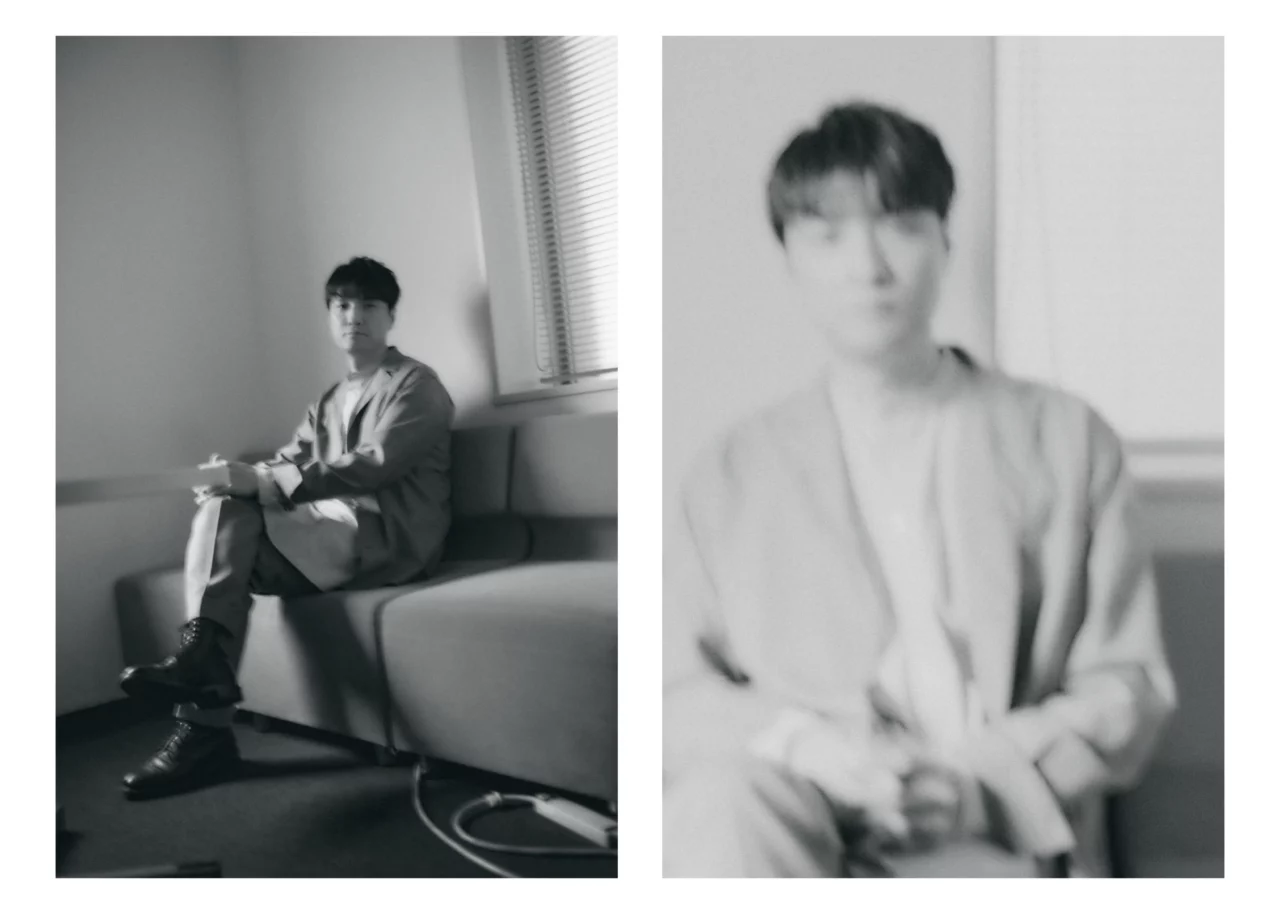
Moriyama: During the intense fear of my body deteriorating, I confronted the darkness within me. At the same time, it felt almost like the fever was helping me detox. Physically, all the things I had been suppressing—like taking medication or receiving IV drips—came flooding out in that moment.
I see.
Moriyama: About ten days later, after everything had passed, I felt like I was gently floating on a calm lake, as if the day after a storm, the sky suddenly cleared up. And with that, the way I saw the world completely changed. I found myself crying uncontrollably over things I normally would’ve brushed off—like sunlight shining through the curtains or hearing the sounds of children playing outside. Even something as simple as going to the bathroom became overwhelming, and I couldn’t stop the tears.
It sounds like you truly experienced the essence of being alive.
Moriyama: Yes, exactly. You think you understand that “life is like this” or “we all die someday,” but even then, sometimes we wish we could just die without the courage or will to actually do it. But in that moment, I realized how desperately my body clings to life, and it made me feel an incredible sense of awe. That was when “Wonderful World” came to life.
The “Wonderful World” you saw at that time was a reflection of that experience.
Moriyama: Yes, exactly. When I faced the darkness, which felt like death, and my perception of the world shifted, I realized that “Wonderful World” was something within me. Before that, I had been looking for greatness outside of myself—in society, in my environment, and in the people around me. But then I realized, it was something that only exists inside of me. So, while getting COVID was definitely a bad memory, it also brought a very important process and experience for me.
Do you still see that world now?
Moriyama: No, I don’t see it now. In fact, I often wonder how I can get back to that feeling. When life returns to normal, it’s easy for your thoughts to stop. But I’m glad that by talking about that experience now, after such a long time, I feel like I’ve been able to recall it, even just a little.
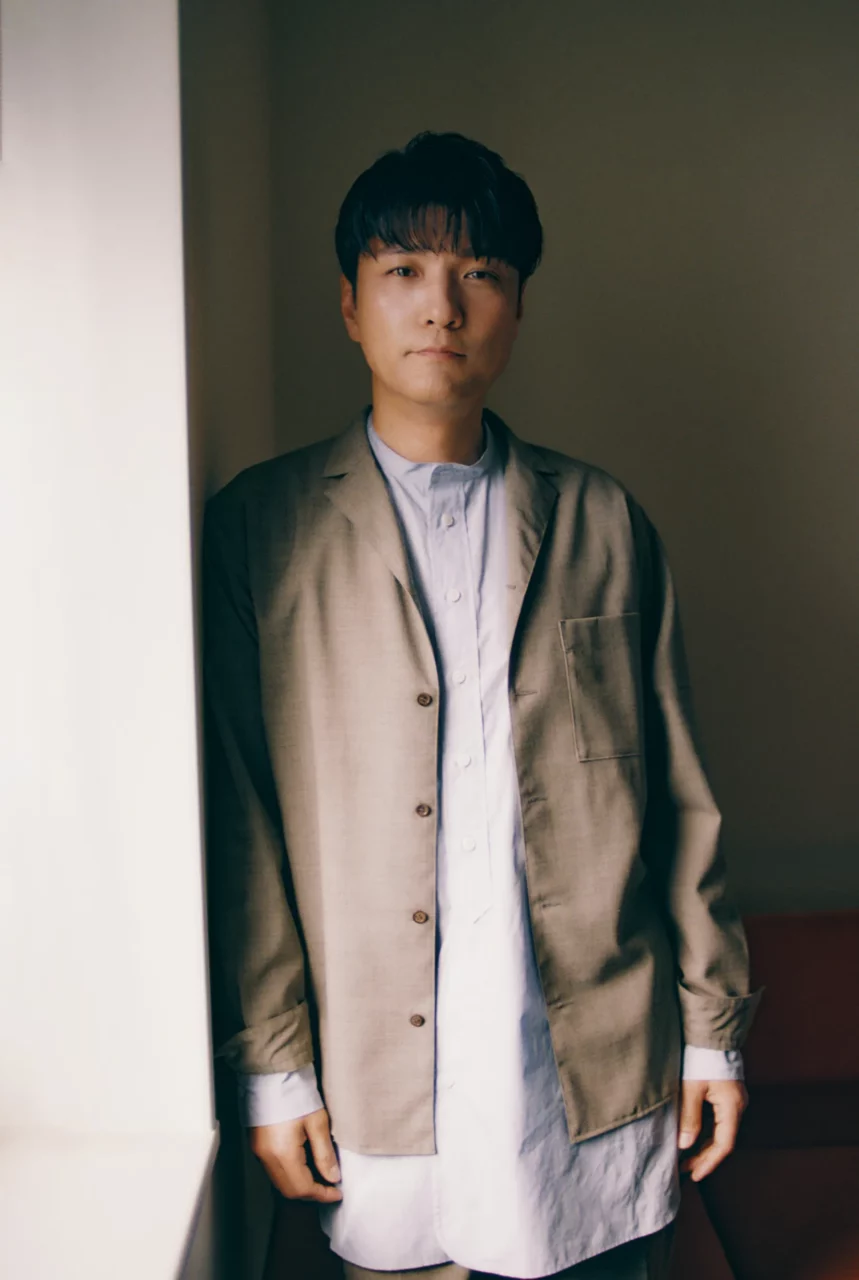
INDEX
Letting Go of the Ego: The Path to True Self
Looking back, how would you describe the period from the beginning of the 20th-anniversary tour, which saw the creation of such songs, to the performance at Ryogoku Kokugikan?
Moriyama: It was a time when my live tour and life became intricately intertwined. Over the course of nearly two years, something always happens to a person. I could have easily deteriorated or faced something similar.
That’s true.
Moriyama: But I never imagined that I’d have to say goodbye to my father. At that time, he was 79 years old, and I thought he still had plenty of life left in him. But looking back, I think the creation of the song “papa” may have been some kind of turning point. So, ironically, the year my father became aware of his impending death, and the journey I embarked on during this tour, became intertwined, and the result was a film that captures that complex period.
What was that year, when your father became aware of his impending death, like for him?
Moriyama: My father lost his mother when he was in elementary school, and he became the kind of person who thought, “No one could possibly understand my loneliness.” He had a self-pitying side to him. I think that made life very difficult for him, and even until the end, he was stubborn and couldn’t open up. I feel that was one of the reasons for the divorce.
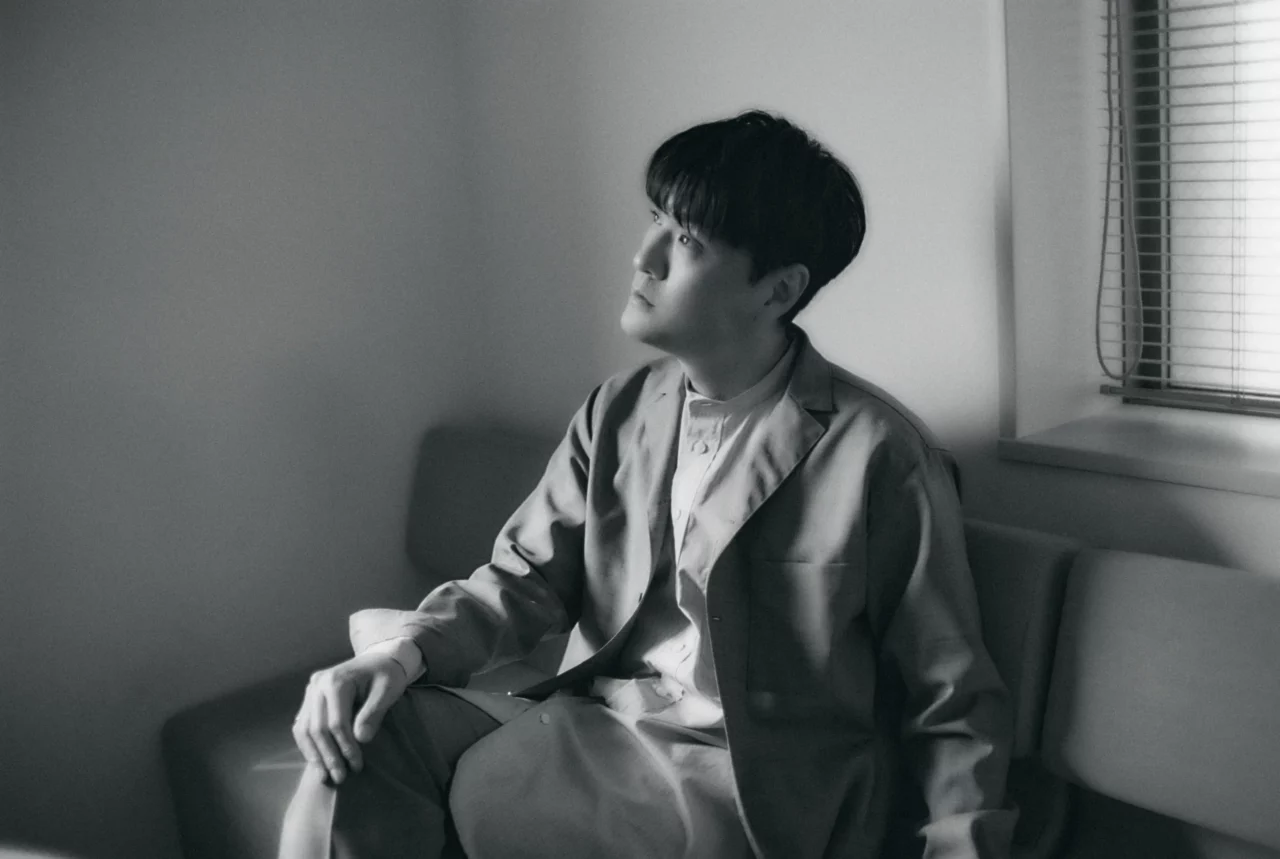
Moriyama: In my father’s final years, I was caring for him in his hospital bed. He had lung cancer, so his condition deteriorated rapidly. About two months before his death, one morning, he suddenly woke up, and as he did, the faces of the people around him came to his mind. He had never been able to cry before, but on that day, tears just kept flowing from morning until evening—he said it felt like a lifetime’s worth of tears. I had been gently rubbing his back every day, and I think, in that moment, his body reacted more than his mind, possibly bringing up memories of when he was with my mother.
He then realized how much he had lived his life with unnecessary pride and stubbornness. He regretted it, but at the same time, by acknowledging it, the emotional blockage seemed to lift, and he felt that finally, as his true self, he would be able to meet my mother in the afterlife. He cried once again. In that moment, I witnessed how life can bring you back to your true self.
This story seems to connect to the feelings you remembered about your father from your childhood.
Moriyama: Yes. In other words, people can’t completely change, but at certain moments, they can return to their original selves. Everyone is born innocent, and as we grow, we form our personalities through family and school life, developing a sense of self. But when you’re in your 30s or 40s, you start letting go of the ego and attachments you’ve built. I believe that living is a process of shedding the things you’ve picked up and returning to your pure self. I always thought my father was the kind of person who couldn’t change, but at the moment of his death, he was finally able to let go. In the end, he was freed from both the physical suffering and mental anguish, and he departed for a bright, new world.
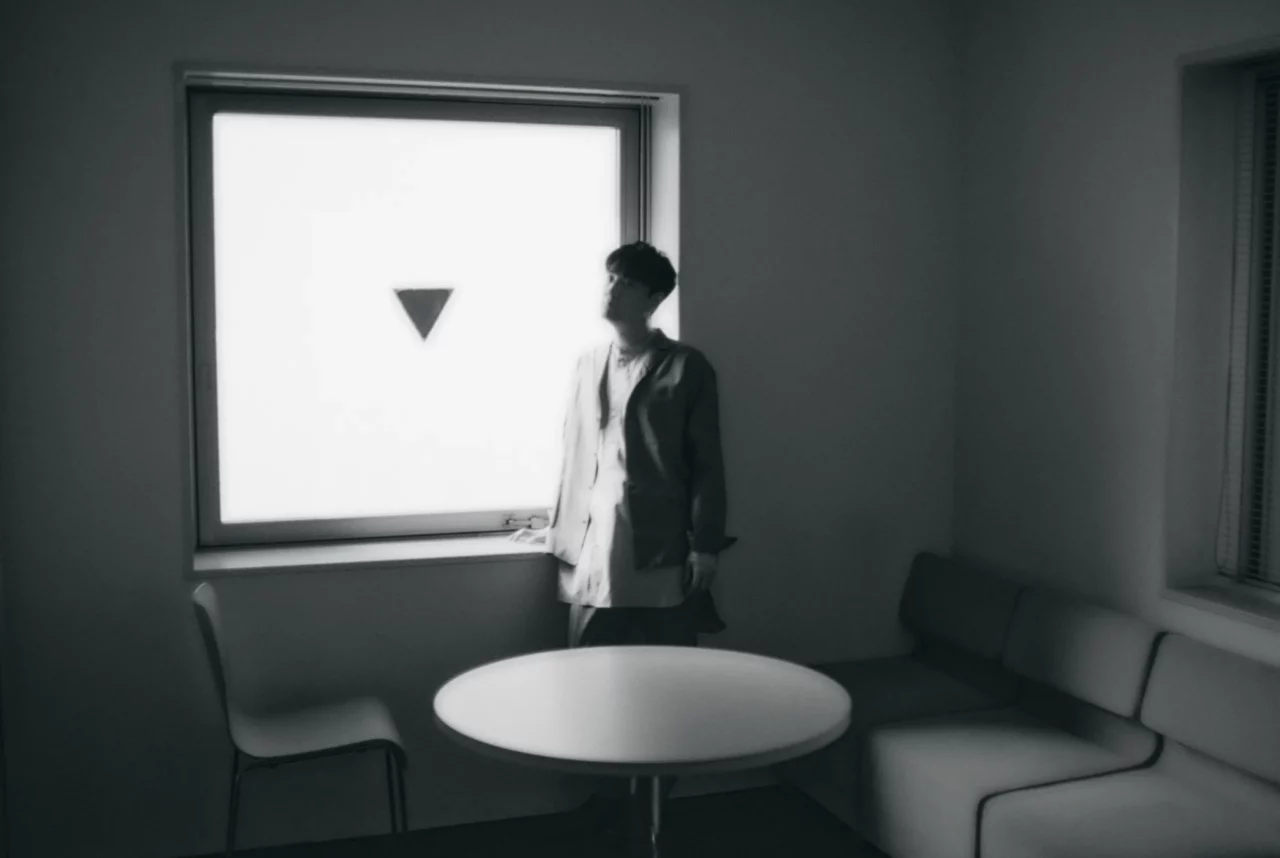
INDEX
The Conclusion Reached at the End of the Journey
In the movie, it was mentioned that “the place reached at the end of the journey was a pure white world.” The end credits were white, which seemed to represent the world your father passed into, but also reflected the place you reached after your tour journey. Can you share your thoughts on that?
Moriyama: When I was singing “Wonderful World” on stage at Ryogoku Kokugikan, the band members gradually left, and I was left alone. At that moment, it felt like being in a park with everyone playing in the sandbox, but when the 5 o’clock chime rang, everyone went home, and I was left alone. There was a certain loneliness to it. That’s when I thought, “Ah, there is no such thing as a wonderful world.”
Was that feeling more of disappointment, or did it feel more like a sense of relief?
Moriyama: It was exactly a mix of despair and relief. I thought, “Ah, thank goodness.” The realization that there is no such thing as a “wonderful world” meant I didn’t have to search for it anymore. That’s when I was able to feel what I had mentioned earlier—that “the wonderful world is inside of me.” And with that, I was able to let go of something. Ironically, the stage was lit with a pure white backlight. The time my father lived and passed, and the time I spent on my final stage, were both the same.
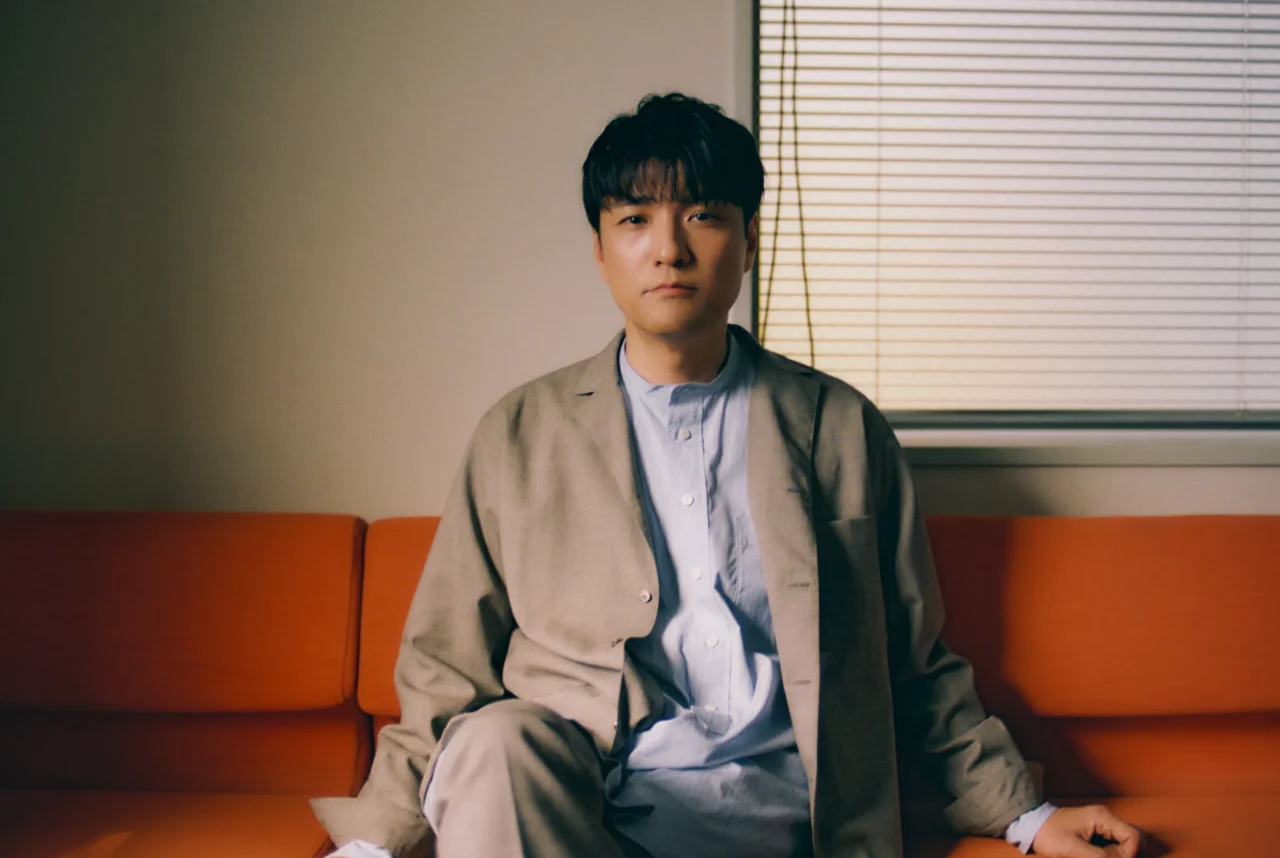
Given how your father and you became so intertwined, it makes sense that the theme song “New World” feels like a song “written by my father.” I was curious—does the “you” in the lyrics, “I’ll leave it to you,” refer to you?
Moriyama: Yes, it’s me, but I think it could also refer to anyone who was touched by my father in some way.
If there’s something your father passed on to you, what would that be?
Moriyama: It’s this—talking about him like this. What I mean is that everything physical fades away eventually, but it lives on in people’s memories. Life may be transient, yet it’s incredibly precious. I feel like my father taught me this through how he lived, especially in his final moments. Though I was physically apart from him, after his passing, I strangely feel a deep sense of closeness to him.
The movie ‘Where is the Wonderful World?’
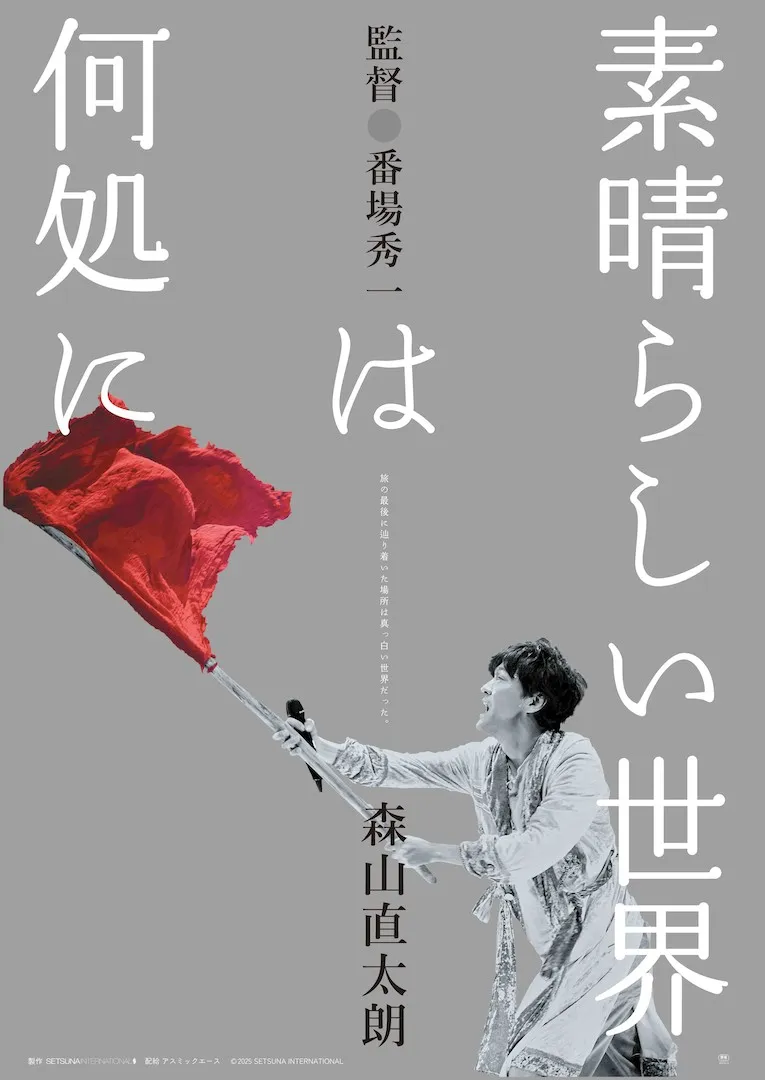
Limited Release Nationwide from Friday, March 28, 2025, for Two Weeks
■ Director: Shūichi Banba
■ Starring: Naotaro Moriyama
■ Theme Song: Shinsekai by Naotaro Moriyama
■ Produced by: SETSUNA INTERNATIONAL
■ Promotional Cooperation: Universal Music LLC
■ Distributed by: Asmik Ace
2025 | Japan | Color | 101 minutes | Vista | 5.1ch
(C) 2025 SETSUNA INTERNATIONAL
Official Website: https://subarashii-sekai-movie.asmik-ace.co.jp/
Naotaro Moriyama “Shinsekai”
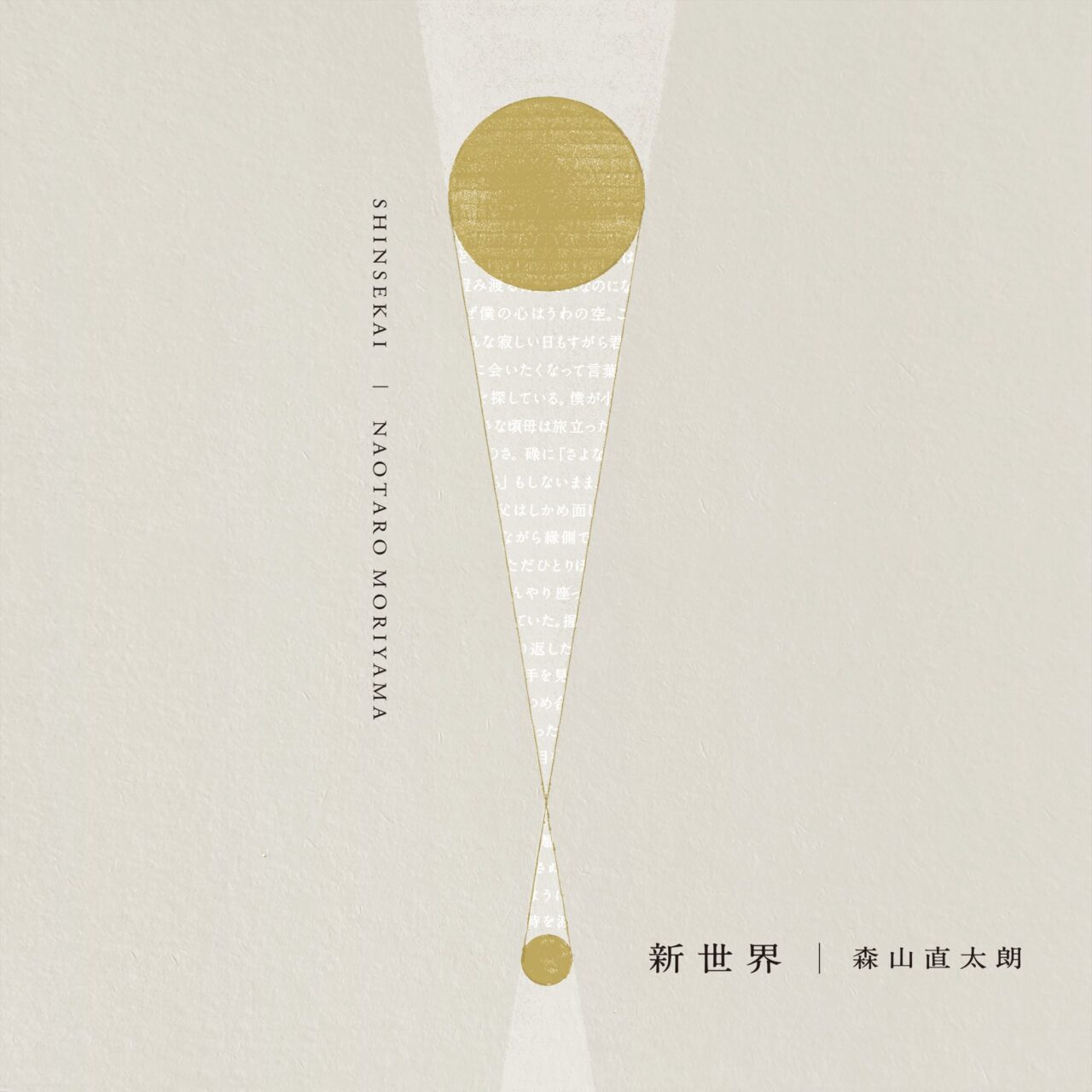
Early release scheduled from Friday, March 28, 2025! Available on various subscription services including Apple Music, Amazon Music, Spotify, LINE MUSIC, and more / Also available on major music download sites like iTunes, RecoChoku, and others!
https://naotaro.lnk.to/shinsekai
Naotaro Moriyama Official Website: https://bio.to/naotaro_moriyama



